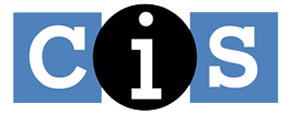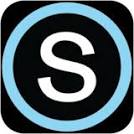MA 104 SyllabusElementary FunctionsSpring 2009, Section 7Saint Vincent CollegeGeneral Information
DescriptionThis is a precalculus course with special emphasis on the polynomial, rational, trigonometric, exponential, and logarithmic functions. The course thus involves functions, algebra, trigonometry, and analytic geometry and is designed to prepare the student for one of the beginning calculus courses. This course also assists the student with the mathematical aspects of a number of college courses in other departments. Many students take this course to fulfill their core curriculum mathematics requirement. The PrerequisiteThis course assumes that the student is proficient in high school algebra. Most students will have sufficient background from high school. Some will have sufficient background due to having taken MA 100, our college algebra course. If in doubt, check with the instructor. Core GoalsThis course contributes especially toward the following core curriculum goals, listed in order of emphasis. Writing good mathematics in the solution of problems is the key communication skill for this course.
Course Goals and Means of Assessment
Grading and Course Policies
Both the instructor and students are expected to do their best to produce a good class and to treat each other with respect. This includes many factors, such as listening when someone else is speaking, trying to understand what others are saying, being of assistance to others, etc. It definitely does NOT include making fun of others. On a practical level, do your best to improve your grade: read the text, attend class, do the work, ask questions, and try to answer questions in class! Mathematics is not a spectator sport! It requires active participation and repeated practice. If you begin to feel lost, consult one of the tutors, see the instructor, or work through the difficulties with the help of another student in the course. Do not let yourself get behind. Note in particular that attendance is expected. Student performance is bound to deteriorate when classes are missed. In order to emphasize the importance of attendance, the policies outlined after this paragraph will be used.
Intellectual honesty is important at Saint Vincent College. Attempts to pass off the work of another as one's own, group work as one's individual work, or to copy someone else's answers on a quiz or exam will result in action appropriate to the seriousness of the situation. All cases of apparent intellectual dishonesty will be referred to the administration. In this course, students are expected especially to do entirely their own work on the exams and quizzes. Other work (the homework) can be done together unless explicitly stated otherwise. Some students learn better when working mostly alone. Others do better when working together. However, never simply copy someone else's work as that does little to help you to learn the material. Remember that you are responsible for knowing how to solve the homework problems and that you will have to face the test questions on your own. Be sure to read the Regulations section of the College Bulletin (which covers such things as grading, academic honesty, etc.) as well as the Student Handbook. Students with disabilities who may be eligible for academic accomodations and support services should please consult Mrs. Sandy Quinlivan by phone (724-805-2371), email (sandy.quinlivan@email.stvincent.edu), or by appointment (Academic Affairs - Headmaster Hall). Reasonable accomodations do not alter the essential elements of any course, program, or activity. If the instructor needs to cancel class, every effort will be made to post a note to this effect on the course web page and on the door to the classroom. If this cannot be done, as a last resort the instructor's phone greeting will be changed to indicate that class is cancelled. |
 |
||
Computing & Information Systems |
|

 Search CIS Site
Tutorials
Search CIS Site
Tutorials
|